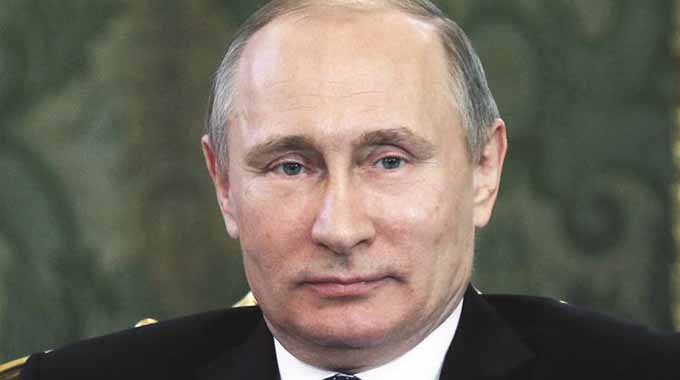Kremlin position on Kerch Strait incident

On November 25, three warships of the Ukrainian Navy violated the rules of passage through Russia’s territorial waters while en route from the Black Sea to the Azov Sea. Despite the repeated warnings and demands to stop, the Ukrainian vessels continued their way, forcing Russia to use weapons. All three Ukrainian ships were detained in the Black Sea.
Three Ukrainian servicemen were lightly wounded and received medical assistance. Their lives are not under threat. A criminal case has been launched over the violation of Russia’s state border. Russian President Vladimir Putin has said that the incident was a provocation prepared in advance as a pretext to introduce martial law in Ukraine. Putin said the provocation could be linked to Poroshenko’s low approval rating ahead of the presidential campaign set to start in late December.
Recent coverage by Western media of the incident at the Black Sea with Ukrainian ships misses the key point: It was intentional action of the Ukrainian naval vessels which deliberately provoked the Russian Border Guard by brazenly ignoring the existing requirements for navigation in the Kerch Strait.
Kiev often says that the Kerch Strait is an international strait and thus the Crimean Bridge restricts freedom of navigation. To begin with, the Kerch Strait has never been and is not an international strait within the meaning of the 1982 United Nations Convention on the Law of the Sea.
It leads to the Sea of Azov, which historically has been (by right of succession to the USSR) internal waters of Russia and Ukraine. Hence, it cannot have a territorial sea, an exclusive economic zone or areas of high seas, which are the defining attributes of an international strait. Thus, the provisions on the right of transit or innocent passage for foreign vessels, which are binding in relation to international straits, are not applicable to the Kerch Strait.
Since March 2014, Ukraine, which is no longer a coastal state in the Kerch Strait, has exercised the right of passage for its merchant vessels, warships and other government ships under the 2003 Bilateral Agreement on the Sea of Azov and the Kerch Strait.
This regime also applies to foreign merchant ships heading to or from Ukrainian ports. Warships and other government ships of third countries may do this only upon invitation from Ukraine, with prior agreement from Russia. The same requirements are applied to foreign merchant vessels and warships visiting Russian ports in the Sea of Azov.
There are two basic reasons for this procedure. First, security of the Crimean bridge — the need for additional security measures is highlighted by a large number of committed or prevented sabotage and terrorist acts by Ukrainian nationalists with support of the Kiev government (namely, the 2015 power grid disruption in the Kherson Oblast with the aim of cutting off power supply in Crimea; prevented attempt to scatter cables in the Kerch Strait fairway in June 2016).
Secondly, special characteristics of Kerch-Yenikale Canal (difficult meteorological and navigational conditions) require special maritime regime which has been in place even before the construction of the bridge.
All ships passing through the strait are inspected, including Russian (for the period from April 1st to October 31st — 31 vessels under Ukrainian flag were inspected; 53 under the Russian flag, 1 408 from third countries, including 256 from the European Union). It is worth noting that in September two Ukrainian naval ships used this procedure for passage of the Kerch Strait going to the Sea of Azov without any problem.
Ukrainian authorities often claim that Russia abuses its border control right in the Sea of Azov and the Kerch Strait for political reasons. It should be noted that any state can take measures in its internal waters to prevent infringement of border, customs, fiscal, migration, sanitary laws and regulations, to secure its transport and economic infrastructure and to protect the environment.
All of the abovementioned cases may serve as grounds for the Russian competent authorities to inspect merchant vessels flying any state’s flag in the Sea of Azov. Any allegations that our inspections contradict international law of the sea are unfounded. Ukraine is entitled to conduct such inspections as well.
Under the 1993 Law on the State Border of the Russian Federation, border control agencies shall be entitled to inspect vessels and their cargo to prevent or stop violations of the Russian state border regime.
The Border Guard Agency of the Russian Federal Security Service (FSB) is also entitled to control fisheries in the Sea of Azov and the Kerch Strait in accordance with the rules established jointly by Russia and Ukraine within the Bilateral Azov Sea Fisheries Commission.
Inspections of merchant and fishing vessels in the Sea of Azov by the FSB Border Guard are legitimate and justified. The inspection procedure complies with international law and Russian legislation; their intensity is proportionate to the level of threats to Russia posed by extremists (including by Ukrainian officials).
The growing number of inspections that has been registered since late April 2018 is caused by enhanced security measures in the Kerch Strait due to the commissioning of the first stage of the Crimean Bridge and the need to halt illegal actions of Ukrainian security services, which had captured Russian seiner “Nord” in March 2018, in violation of the existing bilateral agreements on the Sea of Azov.
All that has been ignored this time by Ukrainian navy vessels which did not file any notification, violated the state border of the Russian Federation and proceeded in the direction of the Kerch Strait without heeding numerous warnings by the Russian Border Guard, at the same time making dangerous manoeuvres.
It was after several hours of futile attempts to reason with the Ukrainians when the Russian border guards had to act in accordance with current legislation and international law and to force ships to stop, escorting them to the port of Kerch.
It was absolutely reckless and extremely dangerous behaviour by the Ukrainian side. It is clear to any objective observer that a blatant provocation was carried out in order to portray Ukraine again as a “victim of Russian aggression”.
The obvious aim is to mobilise Western support for the Kiev regime as well as to provide an excuse for President Petro Poroshenko to declare martial law creating a mechanism to manipulate upcoming presidential elections (which he otherwise is certainly set to lose). Russia is not seeking any conflict with Ukraine and does not threaten anyone; however, it will continue to stop any attempts to encroach on its sovereignty.
There is clearly little hope to find common sense in Kiev now. One can only hope that Western countries sponsoring current Ukrainian regime will find a way to bring it to reason.










Comments